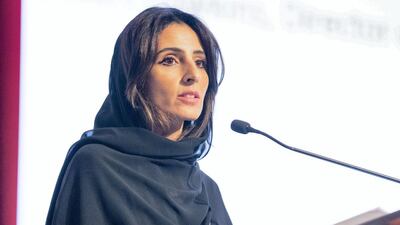The world risks losing more than 10,000 species annually if major changes are not made to avert climate change, a top Emirati environmentalist has warned.
The biggest threat to our future is apathy and we are perhaps the last generation with the power to turn things around, said Razan Al Mubarak, managing director of the Mohamed bin Zayed Species Conservation Fund and managing director of Environment Agency Abu Dhabi.
"Business cannot carry on as usual. We all need to act. This includes politicians, scientists, environmentalist, everyone must make a difference in our day-to-day lives," she told The National.
The world is facing a biodiversity crisis with current extinction rates calculated at between 1,000 and 10,000 times higher than the natural extinction rate, according to the World Wildlife Fund.
“We are running out of time and we need to act faster than we are acting; however, it is important to remember that nature is very resilient. We can see its resilience all around us,” she said.
Human beings are almost wholly responsible for current rates of species loss. Climate change, habitat loss and wildlife trade has not slowed — indicating harsher legislation and more intensive efforts are needed on a global scale.
“What concerns me most is that we, as a global community, let 2020 pass by without setting significant and serious targets and commitments relating to biodiversity loss and climate change,” Ms Al Mubarak said.
“In October, the signatories of the Convention on Biological Diversity will set new targets to reduce biodiversity loss over the next decade; and in November, the countries of the world will reassess and set crucial emissions targets in order to address climate change.
“We cannot afford to procrastinate past these existential agreements which lie ahead of us in 2020."
Scientists at Intergovernmental Science-Policy Platform on Biodiversity and Ecosystem Services estimate that about a million animal and plant species face extinction, many within decades.
Ms Al Mubarak said awareness was vital to stop the misuse of Earth’s resources but concrete actions must be taken if we were to save the world.
“There must be understanding, which must lead to action. We need to appreciate and be aware of the problems concerning the unsustainable use of natural resources.”
Ms Al Mubarak was recently selected as one of two candidates for president of the International Union for Conservation of Nature, which produces the Red List of Threatened Species.
The list sounds the alarm to governments and conservationists to species that face extinction.
As of this month, there are more than 112,000 species on the red list.


